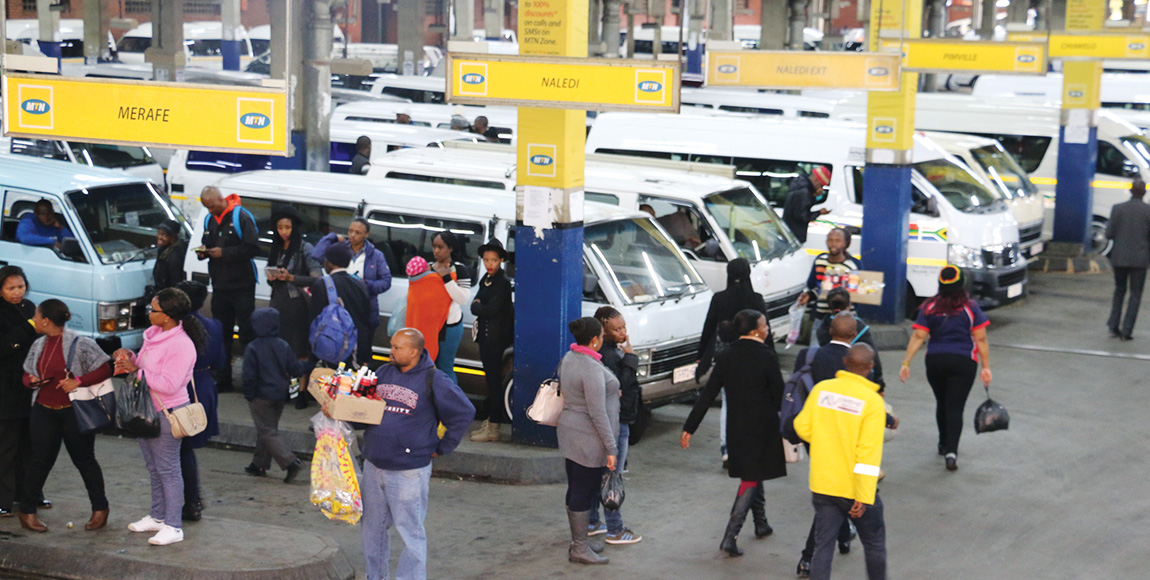Turkeys voting for Christmas?

Many South Africans have said that they won’t be bothering to vote in the upcoming elections. When it comes to public transport, they have a point, because no political party has shown much interest in fixing it.
Any public transport users hoping that either of the two biggest political parties – the ANC or the DA – will help them are like turkeys voting for Christmas. That’s sad, because the lack of decent public transport in South Africa has economic consequences that are almost as serious as the problems at Eskom.
Some numbers: South Africans have R1-trillion worth of cars and spend at least R180 billion paying them off each year. Then there’s fuel (another R200 billion), maintenance, crashes (pick a number between R100 and R200 billion) and congestion.
Nearly half of these costs relate to the journey to work, so, like Eskom, they push up the cost of doing business in South Africa. Our energy use in relation to gross domestic product is among the highest in the world.
About eight million people vote for the ANC. About four million people use minibus taxis every day, and we can safely assume that there is considerable overlap between the two groups.
When it comes to the ANC, we might as well still have the old apartheid signs “Nie blankes alleen – Non-whites only” on our trains, buses and minibus taxis…
If the ANC was serious about public transport, every city would by now have a go-everywhere transport network, running 24-hours a day, using trains, buses and minibus taxis. We would also have a monthly ticket costing no more than R600 (based on the monthly cost of a very long third-class Metrorail trip) giving unlimited travel on the system.
In 25 years, the ANC has, however, done very little to alleviate the burden faced by public transport users. It merely continues to whine about the ravages of apartheid and the injustice of millions of people being forced to travel long distances to work and back.
Sadly, appeals to government to sort out public transport fall on deaf ears. As for minibus taxis, the South African National Taxi Council (which should be lobbying strongly on behalf of taxi passengers) happens to occupy the same building as the national Department of Transport in Pretoria. Few ideas have flowed between the floors of that building over the years, so don’t expect anything to change anytime soon.
Should we vote for the DA then? Its election manifesto proudly proclaims “one transport authority, one transport plan, one ticket, one timetable”. That’s mildly hypocritical.
Apart from some progress with the MyCiti and Go!George initiatives in the Western Cape, elsewhere in South Africa it has done little to use its influence to fix existing bus services.
In Gauteng, its coalition councils should by now have started coordinating the municipal bus operations of Johannesburg and Tshwane. The DA also sits on provincial portfolio committees that fail to insist on reorganising the thousands of buses operating on provincial, bus rapid transit (BRT) and Gautrain routes.
Such a step would create enough capacity to carry an extra 30 000 people each morning and afternoon – almost as much as the Gautrain, but at very little extra cost.
Political parties and so-called “watchdog” organisations should be looking into the generally bankrupt status of all subsidised public transport operators, each with their own incompetent boards of directors and mediocre management teams.
We need to think about these issues when we line up to cast our votes. By failing to do so, we are setting ourselves up for a repeat of the sagas at Eskom, South African Airways, the South African National Roads Agency, Metrorail and others.
Published by
Vaughan Mostert
focusmagsa




